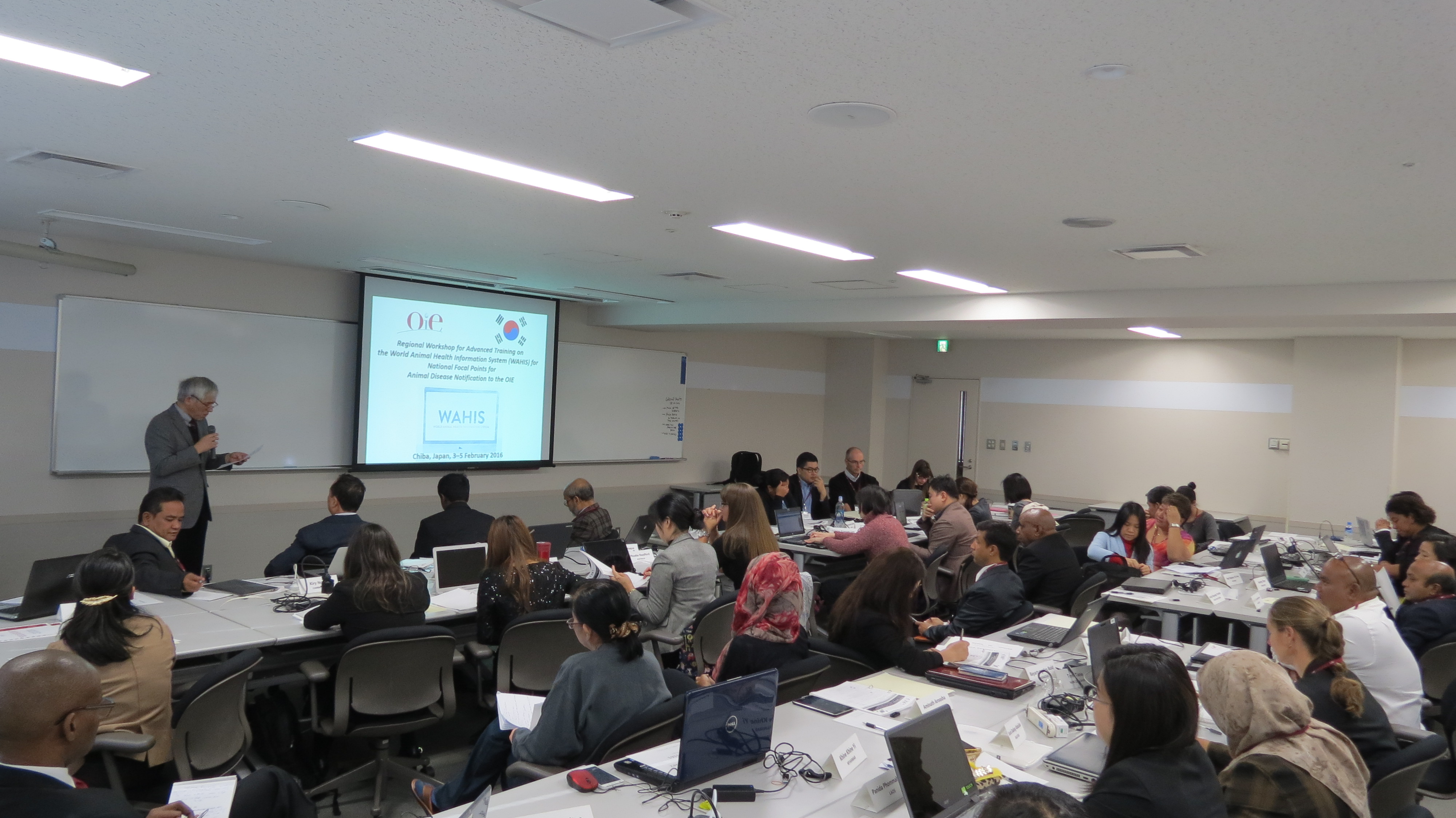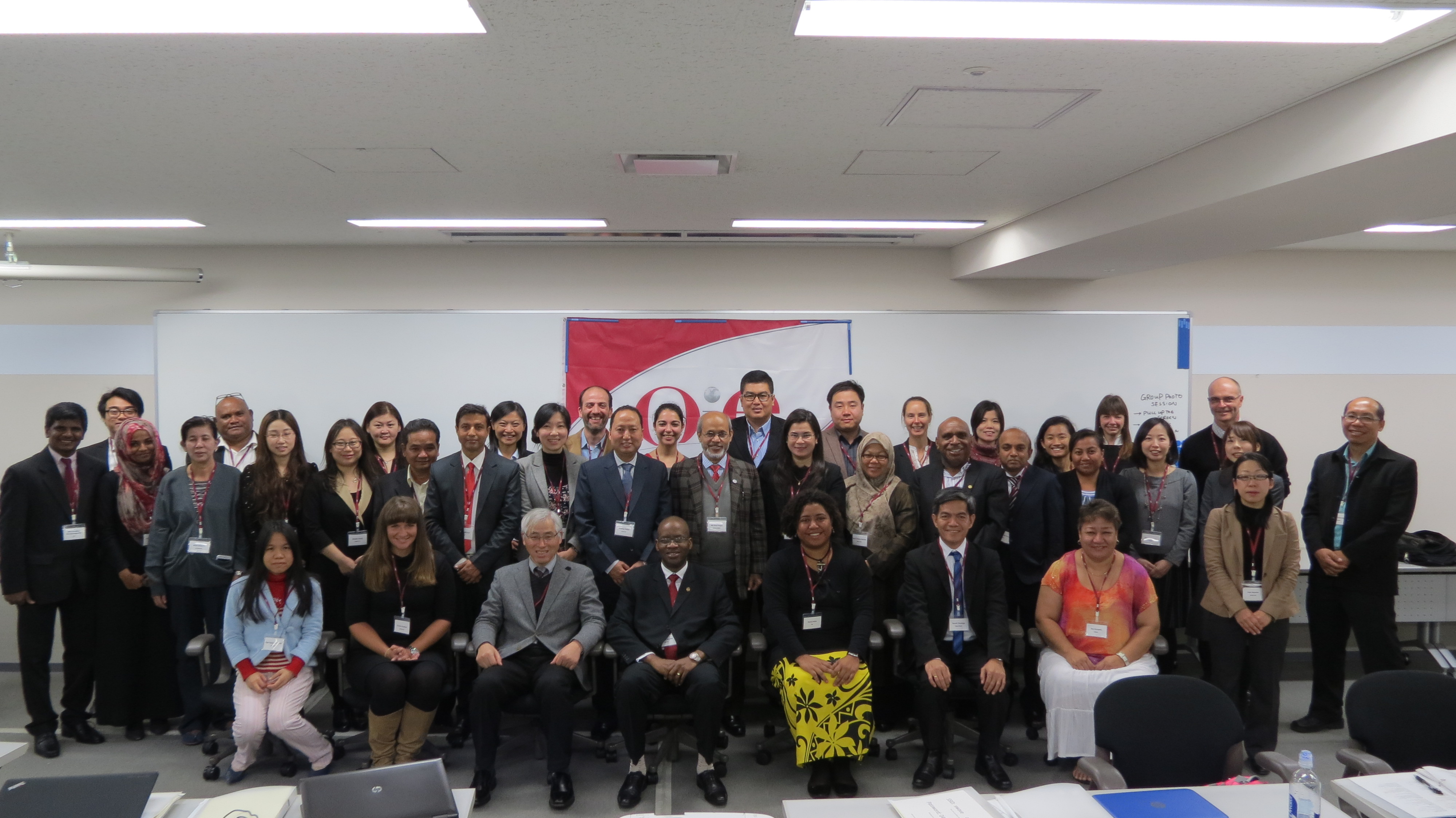This workshop, held in Chiba, Japan, with the support from the Republic of Korea, was attended by 40 participants, including 31 representatives from 23 Member Countries and 5 non-member countries/territories, 1 observer from the Pacific Community (SPC), as well as OIE staff. The programme was aimed to strengthen the participating countries’ capacities on animal diseases notification through training of their National Focal Points.
The objectives of the workshop were to provide participants with, among others, information on the roles and responsibilities of Veterinary Services concerning disease notification; training on the use of WAHIS 2.0 through presentations and practical exercises based on real-life scenarios; tools to improve the quality of information to be provided to the OIE; knowledge on how to utilise the Animal Health Codes for decision making on disease notification; an update on animal diseases notification process; and experience sharing in the region.
The advanced training workshop was designed with a new approach, to be more practical, with group discussions between advanced and relatively new, less experienced Focal Points in critical areas regarding animal disease notification. The format of the training covered the legal basis of disease notification to the OIE and included exercises and group sessions using the creation of the different types of reports (i.e. immediate notifications, weekly follow up reports, six-monthly reports, annual reports, and wild annual reports for non OIE-listed diseases), verification of the information and identification of the most common mistakes.
Based on this new approach, each session started with an informative presentation to introduce each format of reports and highlight its critical points. They were followed by a group exercise, where the participants were given different scenarios: actual cases of country reports, modified actual cases, or hypothetical scenarios created to elicit discussions and highlight areas that were a common challenge in notification. Participants worked in small groups, shared their results and discussed aspects of the case studies having generated most discussion in groups. Following a practical exercise of data entry on WAHIS, each session ended with another group exercise to identify common mistakes/inconsistencies in reports, with a short revision procedure which the participants can implement at country level before submitting reports to the OIE to reduce errors and improve the quality of notifications.
Participants from Bhutan and Vietnam shared their experiences in reporting in the areas of terrestrial animals and aquatic animals, respectively, with a focus on national channels for animal diseases notification from the field to national central authorities. The presentations generated a lot of discussion among participants on country systems for rapid and reliable notification.
The workshop also provided an opportunity for bilateral meetings between the participants and OIE staff to discuss the country reports submitted.
An identical self-assessment quiz was conducted twice, before and after the training, to assess the immediate impact of the training as well as to identify areas that may need more emphasis in future. The quiz showed the results of significant improvement of understanding on the different aspects of the OIE’s notification procedure.
The workshop reiterated the importance of transparency in the animal disease situation through the good quality of reporting from Member Countries, so that neighbouring countries can prepare and undertake necessary actions. The discussions and experience sharing reinforced networking among the participants. Participants from non-OIE Member Countries and Territories also expressed their will to pursue their collaboration with the OIE regarding notification.

